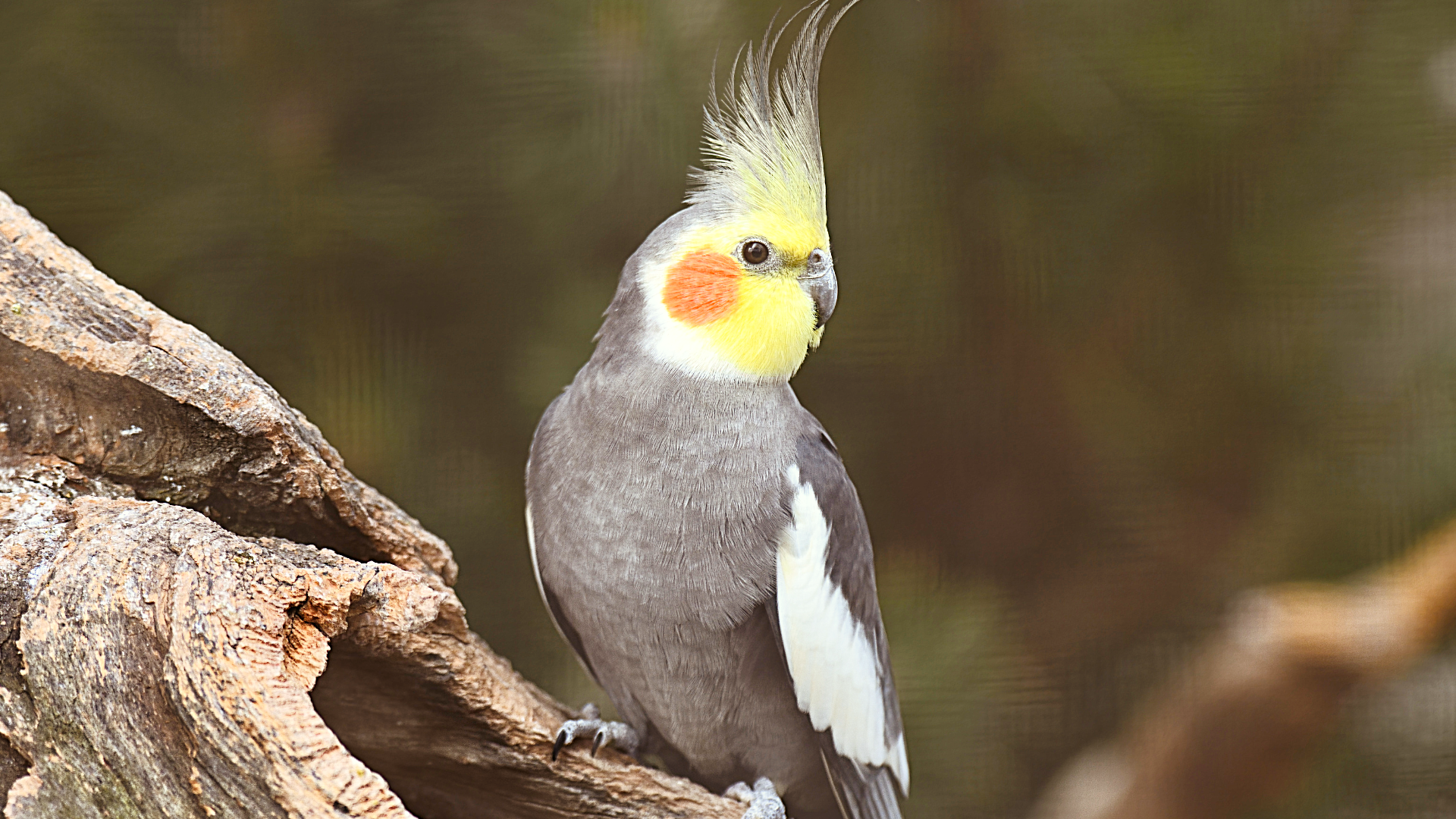Caring for your Cockatiel
Cockatiel
(Nymphicus hollandicus)
Basic Information:
Cockatiels are native to the arid and semi-arid regions of Australia, where they live in open woodlands, grasslands, and near water sources. These small parrots are known for their sweet temperament, expressive crests, and gentle whistles. They are sexually dimorphic, with males typically having brighter facial coloring and females often displaying horizontal tail barring. Adult cockatiels typically grow to 12–13 inches in length.
Lifespan:
15-25 years in captivity with excellent care.
Sexing:
Cockatiels are sexually dimorphic, but only in certain color mutations. In normal grey cockatiels, males have bright yellow faces and more vibrant cheek patches, while females have duller coloration and may retain barring on the tail. For other mutations, DNA testing is often the most reliable method.
Enclosure:
Minimum Size: 24” x 18” x 24” cage with bar spacing of ½ inch or less
Horizontal space is crucial for movement; provide multiple natural wood perches, hanging toys, ladders, and swings.
Rotate toys and rearrange perches regularly to encourage mental stimulation and exercise.
Bedding/ Liners:
Line the cage bottom with newspaper or paper towels and change daily. Clean perches, dishes, and cage surfaces weekly to prevent bacterial buildup.
Lighting & Temperature:
Maintain a consistent 12-hour light/dark cycle using natural daylight or full-spectrum avian lighting.
Keep room temperature between 65–80°F. Avoid drafts, direct air vents, and sudden temperature changes.
Humidity:
Maintain 40–60% humidity. Offer regular opportunities for bathing via shallow dishes, misting, or shower perches.
Food:
Feed a base of high-quality pellets, supplemented daily with fresh leafy greens, vegetables, and occasional fruits. Seeds and nuts should be offered in moderation as treats or training tools. Always provide fresh, clean water.
Socialization:
Cockatiels are extremely social and thrive with daily interaction. They can become very bonded to their humans and often enjoy shoulder time, gentle talking, and learning simple tricks.
Offer 1–2 hours of supervised out-of-cage time daily.
Rotate foraging toys, chewable items, and training sessions to stimulate their curious minds.
Affectionate, intelligent, and easy to train, cockatiels make fantastic pets for both new and experienced bird owners. Their friendly personalities, combined with relatively simple care needs, make them one of the most beloved companion parrots in the world.


